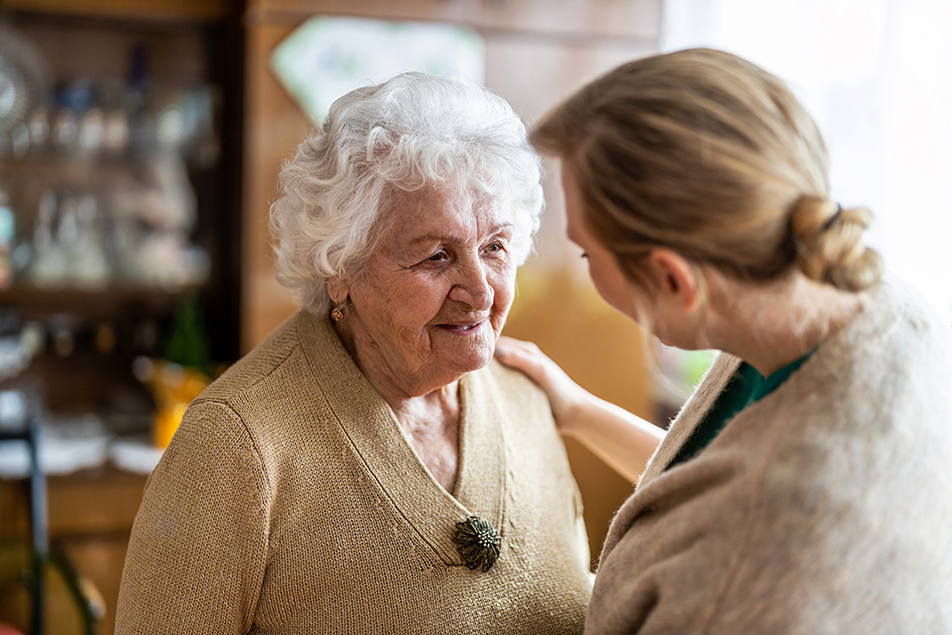
Hospice is known for providing compassionate end-of-life care to patients and their families. However, the journey often contains challenging moments that are difficult to navigate. Karen Kosberg, chaplain, Parkview Home Health and Hospice, discusses the role of a hospice chaplain and how their work helps patients and families walk this emotionally charged path.
What are some of the most significant challenges patients and families face during hospice?
There are many emotions that both patients and their families experience as they face the end of life. Grief is part of that journey, both the loss along the way and the anticipation of life after a loved one passes. Anxiety and stress for patients and caregivers are also very real. The patient may fear the disease process and the prospect of being in pain, while caregivers may experience the stress of ensuring their loved one is cared for and comfortable. Many people even experience anger and sadness for the patient as they let go of the life they knew and the people they loved. Then, as people find ways to say goodbye, it’s often a time of reflection where they examine their own lives and relationships, leading them to question their faith and beliefs about God, life and death.
How does a chaplain help individuals cope with those challenges?
One of the greatest gifts a chaplain can give patients and their loved ones is the gift of listening. A chaplain provides a person the space to express and examine the many varied feelings they are experiencing. We provide a safe place to share the good, the bad, and the ugly without judgment and in complete confidence. A chaplain helps people sort out feelings and questions that are part of their hospice journey, including spirituality, faith and God. A chaplain does not criticize someone’s beliefs. Instead, we walk alongside them, helping them resolve their questions and find peace. We work with individuals to strengthen their spirituality and deepen their faith. Our goal is to help people use their grief, uncertainty, and questions to help them draw on their faith and spiritual strengths in hopes of growing closer to their God.
We go about this process in a variety of ways, including:
- Keeping regular visits with patients, families and caregivers.
- Being good listeners and holding conversations in confidence.
- Connecting people with their faith traditions.
- Providing religious services, sacraments and prayers.
- Informing and guiding people regarding living wills, organ donation and funeral planning.
- Providing grief ministry with the patient and loved ones during the illness and with the bereaved after the death.
How does your approach differ when dealing with a patient vs. the family or caregiver?
I find that patients are more worried about their family and loved ones than they are about themselves. It’s essential to listen to their worries and encourage conversations with loved ones about those concerns, finding ways to help them prepare their family. Patients and caregivers often experience grief and stress differently and from different vantage points, with one person leaving while the other stays behind. There is a nuance to providing spiritual support to each person. But no matter what, it’s crucial to accept people for who they are and meet them where they’re at in their journey.
What advice would you give to those currently walking through a hospice journey?
Know that this will be a testing time, maybe like you’ve never faced before. Because of this, it’s important to have someone safe whom you can experience and share your feelings with. Allow them to share this journey with you because no one can do it alone. Also, make sure you’re nurturing your spirit. Draw strength from your God and your faith, and know that it can be a time of love, celebration, forgiveness, and healing, recognizing who and what is most important.
Final thoughts
I believe that we are all spiritual people and that there is a spiritual core to each of us. When we face our death or the death of someone we love, caring for our spirit is essential. That is a chaplain’s role throughout this process, and what an honor it is.